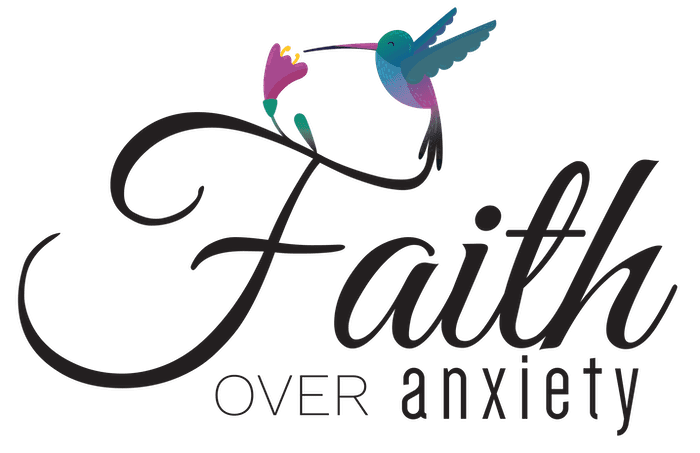The phrase Mental health is just as important as physical health has become pretty ubiquitous and widely accepted.
However, I think the wording is fundamentally wrong.
Because since when is the brain not a part of our physical bodies?
Mental Health and physical health are one and the same. Mental Health is physical Health.
Nobody says “Heart health is just as important as physical health” or “Prostate health is just as important as physical health.”
That would sound weird, right?
So I’m not sure why we’ve been conditioned to look at mental health as some separate entity from the rest of who we are when our brains are very much a part of the system of organs that make up our bodies.
When we experience conditions like depression or anxiety, many of the identifiable symptoms manifest in our physical bodies:
- Tiredness/fatigue/lack of energy
- Weight loss
- Unexplained physical problems (i.e. – back aches)
- Nausea/vomiting
- Headaches
- Muscle tension
- Heart palpitations
- Hot/cold flashes
- Numbness or tingling sensations throughout the body
Before I was hospitalized for a week due to depression and anxiety, I had a major panic episode where I had hot flashes that felt like my skin was burning, and intense heart palpitations that felt like my heart was about to explode in my chest.
The physiological symptoms manifested throughout my body first, and then my brain attempted to process what was happening. Am I dying? Is God about to kill me? Is this some type of supernatural occurrence?
I had no idea that the body could even experience those sensations, let alone that they were connected to an illness occurring in my brain!
Interestingly enough, while in the hospital, it was discovered that my blood pressure was unusually high…at age 22.
My entire body was in complete disarray and in physical pain so intense, that it’s hard to describe.
And with my recent late-night experiences of being awoken at 3:00 am by intense panic attacks or with the sudden urge to vomit due to anxiety, I can attest that the physiological aspects are very real.
Moreover, other symptoms like feelings of sadness, hopelessness, irritability, slowed thinking or speaking, and suicidal thoughts, can all be linked to chemical changes that occur in our brains.

This is why when brain scans are performed on people with different disorders like OCD, Depression, Schizophrenia, Anxiety, Bipolar disorder, etc., the results all illustrate changes that have occurred in the brain itself.
And let’s not forget that disorders also have a genetic component.
The reason some people have brown eyes instead of blue eyes could be the same reason why some people are prone to anxiety, while others aren’t. Genetics.
While studies are still inconclusive, the evidence strongly suggests that genetics play a large part in a person’s susceptibility to developing depression or anxiety-related disorders.
Another indicator that should help us understand that mental health is physical health is the overwhelming evidence that nutrition is a big part of regulating mood disorders.
Just like we have to eat to control conditions like diabetes and high blood pressure, we have to eat for brain health as well.

There are so many books on the market written by licensed mental health professionals, like Nutrition Essentials for Mental Health by Dr. Leslie Korn, which talk about how eating the right foods can help relieve symptoms.
And research for trauma recovery suggests that one of the best forms of treatment for PTSD incorporates physical movement.
Activities such as yoga, tai chi, running, and other practices which involve full-body movement are essential to long-term healing from PTSD.
This is explored in detail in the widely accepted book by Dr. Bessel van der Kolk, The Body Keeps the Score: Brain, Mind, and Body in the Healing of Trauma.
So in the fight to end the stigma surrounding mental health, we have to start viewing the brain in the same way we view the heart, the prostate, or the kidneys – as an organ in the body that creates dysfunction for the entire system when it’s not healthy.
Mental illness is not a choice or something to be shunned or ashamed of.
It’s a physical illness that requires medical attention and deserves compassion just like anything else.
We should feel just as comfortable speaking openly about our time in the mental ward as we do talking about our knee surgery.
We should never have to whisper for fear of attracting stares or embarrassing the person we’re with.
Because our experiences are real and often intensely painful and we deserve to be heard without garnering ignorant or cruel-spirited reactions.
Mental health is physical health and we would all be better off if we learned to see it as such.
Sincerely,
Alexia





Thank you for sharing this. I have encountered some believers who think it’s unspiritual to have anxiety or depression. Your article makes perfect sense. God bless.
Thank you so much for your comment!
Yea, when you’re sitting on the train, not thinking about anything in particular and your heart starts racing and you start sweating for absolutely no reason, then you begin to realize that there’s an element to your disorder that you’re not totally in control of. Deep breathing and using proven strategies can stop a panic attack, but even my doctor said that they can come out of nowhere, literally at any time. That’s just how PTSD and anxiety disorders work. My mental illness has ALWAYS been accompanied by physical symptoms. We have to change our language surrounding mental health.
This was such a good read Alexia and I agree that mental health is physical health. When I first got sick I noticed that I would have psychosomatic symptoms. Meaning that whatever I was feeling mentally (like stress for example) it would manifest physically in my body thru pain or migraines. I had to learn how to let God be my peace. The brain is the most important organ in the body. It regulates everything and it’s the only one that can’t be transplanted. Once a person’s brain stops working it is the end of life. If your heart stops, yes it’s a problem, but you can receive a transplant or pacemaker to help sustain life. Thanks so much for sharing!